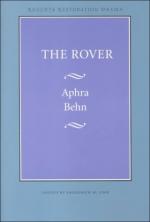|
This section contains 5,914 words (approx. 20 pages at 300 words per page) |

|
SOURCE: "Contestations of Nature: Aphra Behn's 'The Golden Age' and the Sexualizing of Politics," in Rereading Aphra Behn: History, Theory, and Criticism, edited by Heidi Hutner, University Press of Virginia, 1993, pp. 301-21.
In the following excerpt, the critics assess the coherence and principles of the ostensibly feminist ideology presented in Behn's poem "The Golden Age. "
Recent feminist critiques of early modern science by Carolyn Merchant [The Death of Nature: Women, Ecology, and the Scientific Revolution, 1980], Brian Easlea [Witch-Hunting, Magic, and the New Philosophy, 1980], and Evelyn Fox Keller [Reflections on Gender and Science, 1985], have argued for the foundational status of the popular analogy (used by Francis Bacon, Robert Boyle, and others) that identifies "man's" exploitation of a feminized nature with the patriarchal repression of women. Although in the context of seventeenth-century natural philosophy, Aphra Behn's 1684 poem "The Golden Age" similarly offers a counter to masculinist constructions of nature and...
|
This section contains 5,914 words (approx. 20 pages at 300 words per page) |

|


